
How has Airbnb changed over time
Introduction
Airbnb has changed significantly since its early days in 2008. The company started by offering simple, budget-friendly accommodations, but over time, both its business model and its marketing strategies have evolved to match the company's understanding of their user preferences.
By looking at how Airbnb’s website has evolved over the years, we can see how the company’s messaging, design, and approach to customer engagement have reflected these changes. This article will take you through key moments in Airbnb's marketing history, using website snapshots to highlight what happened in each year and how it shaped the brand's image.
Global expansion in 2012
In 2012, Airbnb experienced significant growth mostly due to its global expansion. The company reached a milestone by surpassing 10 million bookings since its founding in 2008. Airbnb expanded its presence internationally, opening offices in key cities such as London, Paris, and Berlin.
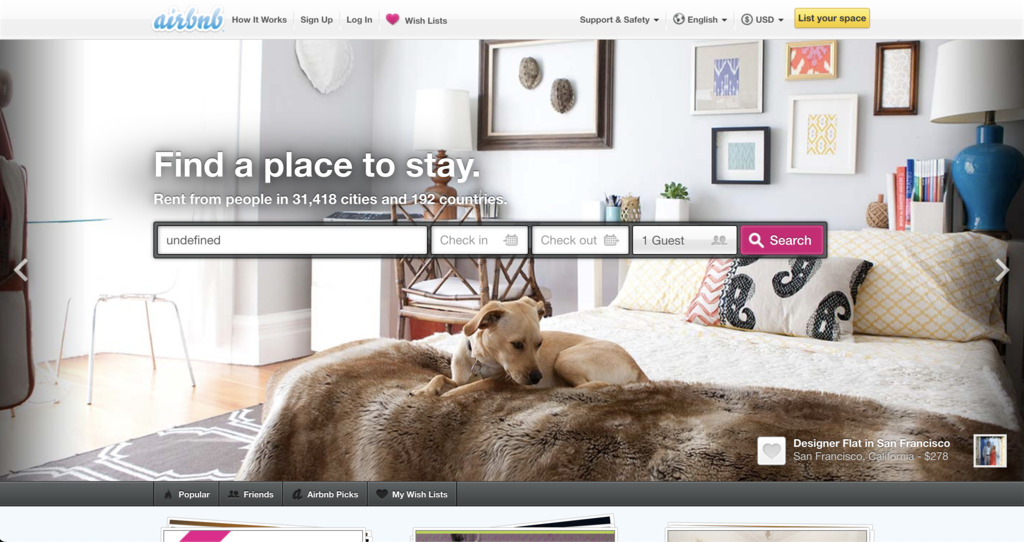
It also enhanced its platform by introducing features like the "Neighborhoods" tool, designed to help users find accommodations suited to their interests. Airbnb’s is not longer a niche startup but major company in the travel industry.
Funding round in 2014
In 2014 alone reached over 10 million guest stays. The company raised a new funding round of $475 million led by Sequoia Capital, bringing its valuation to around $10 billion.
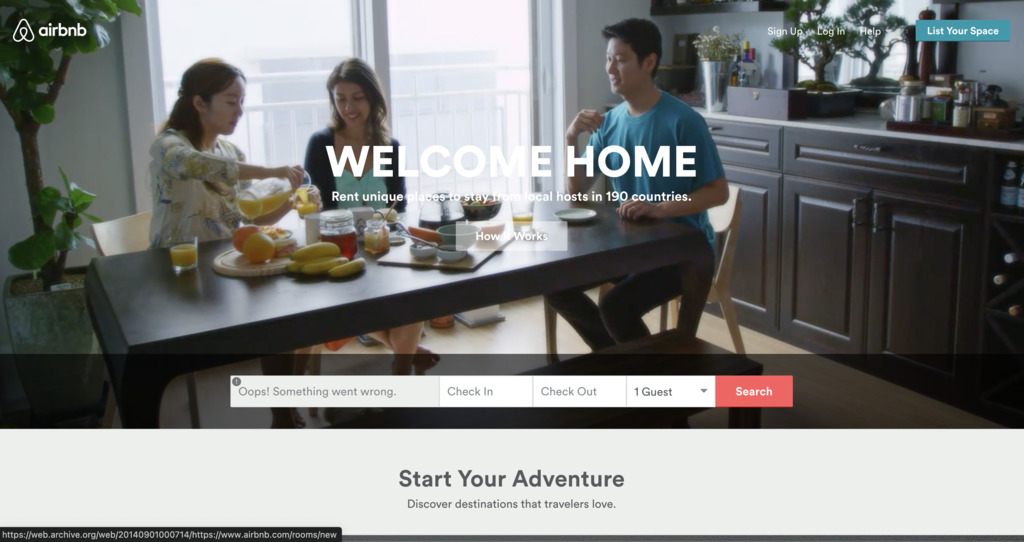
At this time, the company redesigned its website and app and unveiled a new logo, the "Bélo," symbolizing "belonging" and "community". Airbnb also faced regulatory challenges, particularly in cities like New York and San Francisco, where local governments scrutinized short-term rental laws.
Airbnb Experiences and funding in 2016
In 2016, Airbnb continued its expansion, launching Airbnb Experiences, which offered users activities hosted by locals, signaling a move beyond accommodation into full travel services. The company also secured $1 billion in funding, raising its valuation to $30 billion, positioning it among the world’s most valuable startups.
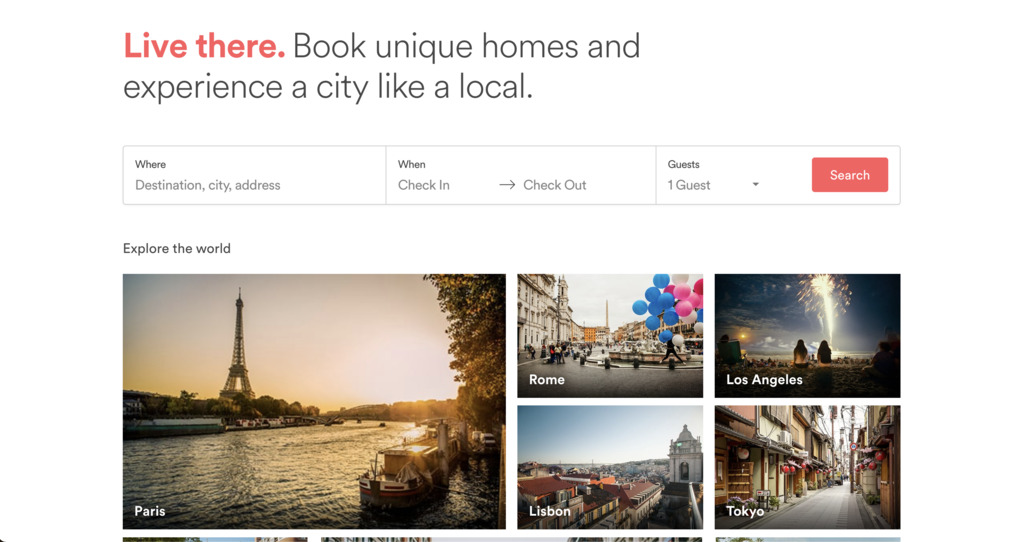
Additionally, the company introduced tools to help hosts comply with local regulations.
IPO preparation and HotelTonight acquisition in 2019
In 2019, the company acquired HotelTonight, a last-minute hotel booking platform, in an attempt to broaden its offerings beyond home rentals.
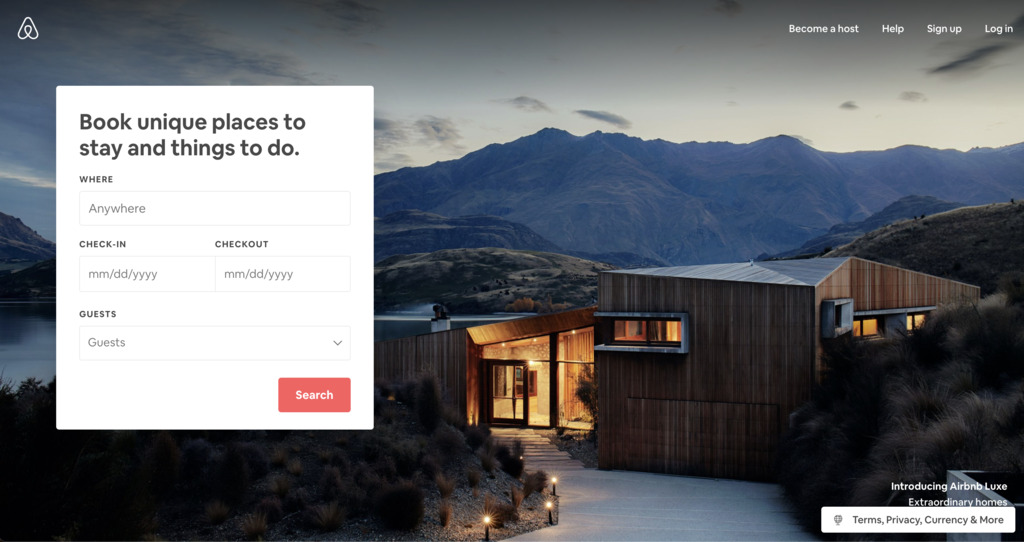
It also announced plans to go public in 2020, sparking widespread anticipation about its IPO. Regulatory challenges remained prominent, with cities like Boston and Los Angeles introducing stricter short-term rental regulations, prompting Airbnb to adapt its policies. Additionally, the company focused on improving safety by introducing a global guest and host verification system to enhance trust on the platform.
Travel recovery after COVID in 2021
In 2021, Airbnb experienced strong recovery and growth as global travel rebounded from the COVID-19 pandemic. The company reported record revenues driven by a surge in domestic travel and long-term stays as remote work became more popular. Airbnb introduced the Flexible Search feature, allowing users to explore listings without specific dates.
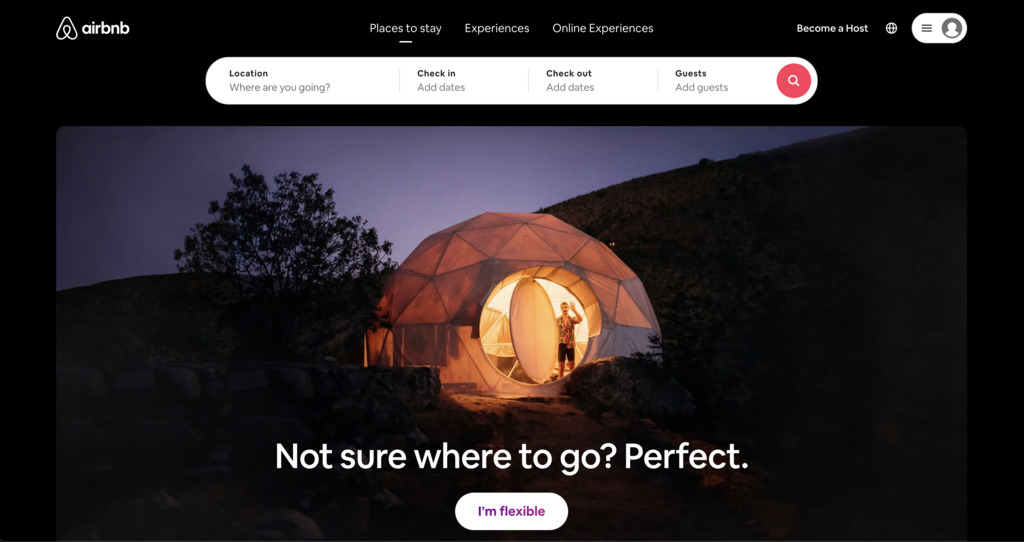
Despite ongoing regulatory challenges, Airbnb expanded its host support services and implemented initiatives to improve safety and trust, including updating its guest review system.
Guest Favourites and AI tools in 2023
In 2023, Airbnb introduced updates for both hosts and guests. One notable change was the launch of "Guest Favorites" that highlights the platform's most highly rated listings to helping guests discover trusted accommodations.

The company also improved its host tools by adding AI-powered photo tours that organize images by room, making listings more visually engaging. Additionally, Airbnb expanded its co-hosting capabilities, allowing hosts to share payouts more flexibly and communicate directly with co-hosts via the platform. The company also refined its pricing visibility tools, enabling hosts to compare prices with similar listings for better competitiveness and transparency
Summary
Airbnb’s has evolved in response to changes in the travel industry, user behavior, and technology adoption. By tracking the shifts in its website design and messaging, we can better understand how the brand has grown from a small startup to a major travel company.
Andreas Tzionis
—
5/12/2024